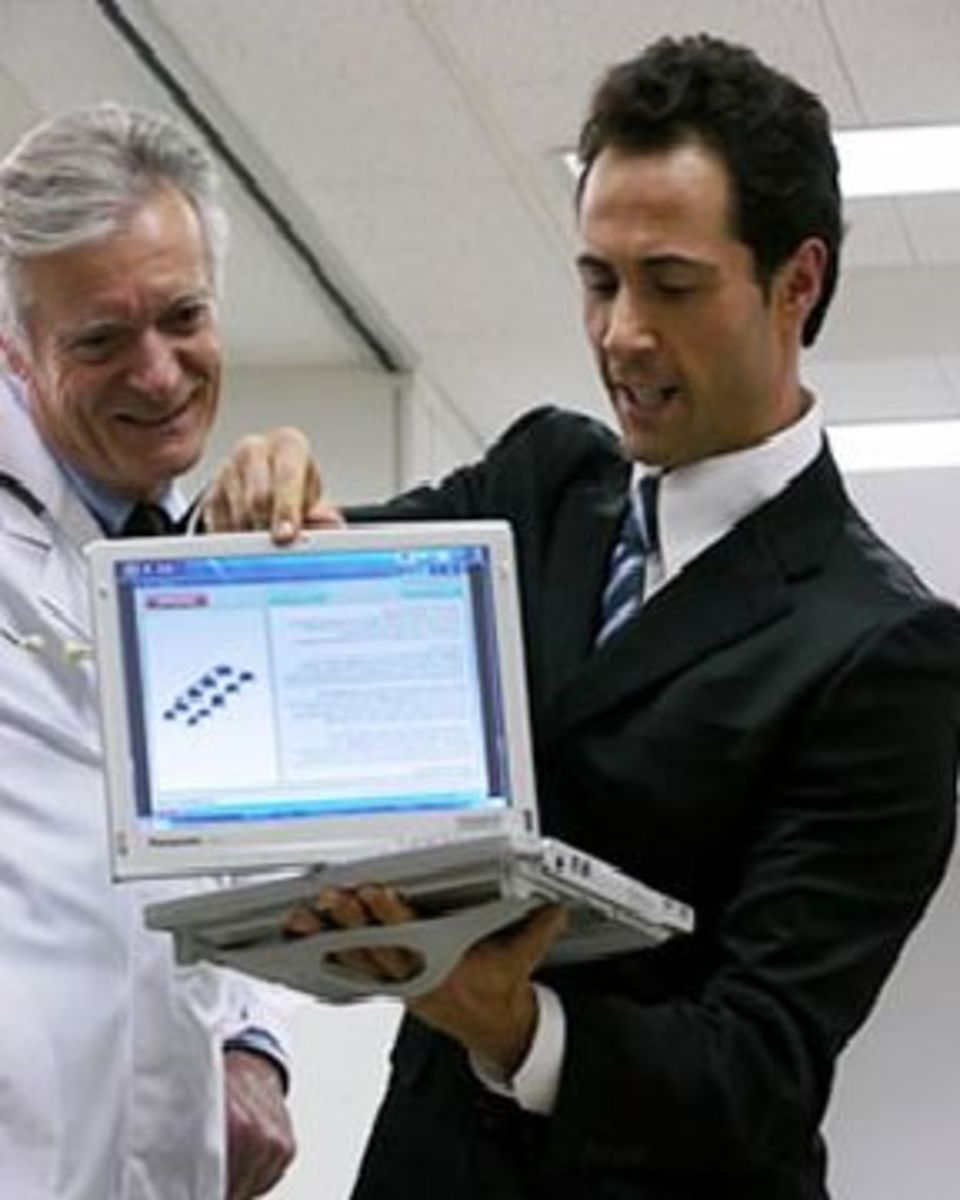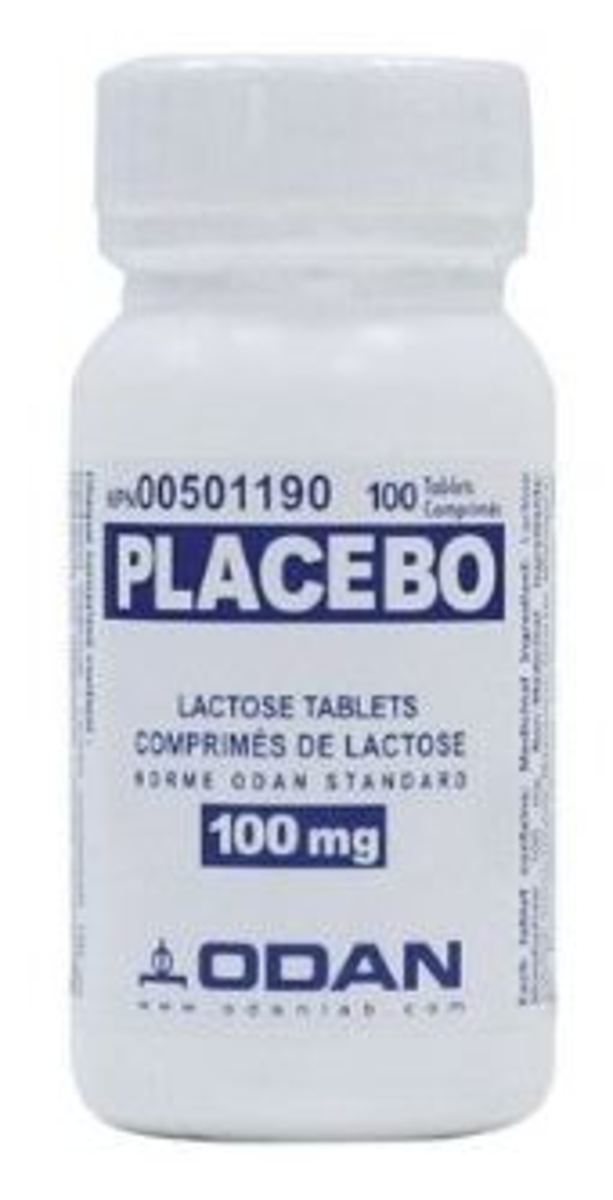- HubPages»
- Health»
- Health Care, Drugs & Insurance»
- Prescription & Over-the-Counter Drugs
Pharmaceutical lies: Are All Your Medications Safe For You?
Know Your Medications BEFORE Taking Them



Pharmaceutical lies
The medications we take may be killing us instead of curing what ails us.
Are They Safe?
Are They Necessary?
Are They a Rip-Off?
Your prescription medications can kill you.
Take charge of your own health care.
- The Truth About the Drug Companies
Truth About the Drug Companies by Marcia Angell, M.D. - A Riveting Summary
The medication dilemma
As a retired Registered Nurse after 35+ years of pushing pills (just one task amongst many other tedious chores that are not for the faint of heart), i have reached some fascinating conclusions about medication use that i will gladly share with you. Both over-the-counter and prescription types.
First of all, let me just say that medications do have a legitimate place in treating diseases. But (there goes that proverbial 'but' again) there are some things you need to know that the pharmaceutical companies just don't want you , as a consumer, to know. So, i am here to tell you a few of them, answer your questions, give advice, and enlighten you on how the "system" works, or better yet, does not work.
Are today's medications safe? Dubious question at best. What ever you may believe about medications, believe this above all else:
The pharmaceutical companies are in this business for one reason, and one reason only. To Make Money!!! The greater the profit, the better. And as with all other free trade businesses in this world their motto is the same: "PROFITS ABOVE ALL ELSE" and that includes "SAFETY".
- Law Firm Of Pepper Hamilton LLP | Consumer Protection Laws and Prescription Meds: A Poor Fit
Law firm providing corporate law, securities law, complex litigation and other legal services to leading businesses and organizations. Pepper Hamilton LLP was founded in Philadelphia in 1890.
Laws that protect consumers
There are very few medications that are manufactured in the USA any more.
99+ % of all medications in this country are manufactured in 3rd world countries that have long histories of intense dislike for the USA.
- Always ask your pharmacist what the country of origin is, for all medications that the doctor has prescribed. Most of them will not even know. YOU have the right to know, and the right to request medications made in the USA.
Their first line of defense against your question is "It doesn't matter, because the FDA (food and drug agency) monitors all medications that come into this country".
- This statement is NOT TRUE. The FDA cannot possibly monitor all medications coming into the country. Mainly because they do not have adequate staffing, adequate controls within their own agencies, adequate funding and worst of all, inspectors that are being paid to look the other way.
And don't even bother to ask your doctors. They get all their information from the drug company's sales representatives (more commonly known as a 'salesman' who works on commissions) who have absolutely no knowledge of medicine, medical practices, or what these medications are made of, or how they work. And why should they? They are just paid to sell these products.
- Fact: with the out sourcing "shame" in this country, the bottom line is simply one thing: Profit.
Medications are manufactured in such countries as Pakistan, China, India, Turkey, Mexico, and any other 3rd world country that can "create" a product that will generate a higher profit for the pharmaceutical companies. Some are even manufactured in Afghanistan, believe it or not.
- Prescription Medications: Side Effects of "Statins"
Prescription medications can help with many diseases and conditions, though some do more harm than good. This article looks at a class of drugs known as
Generic versus Brand name drugs
"Generic" brands are the worst because there are little or no regulations in place to control or monitor the ingredients that are used to create this 'cheap version' of the real thing.
The active ingredients in these generic brands are supposed to be within a certain range, but can vary so vastly that you may be getting much less, or more (less likely) than the dosage that your doctor has ordered. The "filler" or "inert" ingredients are of little importance to the FDA, or the drug manufacturers, and can be worse for your health than taking no medication at all.
The other problem with generics, especially if the tablets are scored and broken to make two doses: since the inert ingredients are haphazardly intermixed with the product that actually has the intended effect, when the table is broken, one half may be stronger than the other half.
The "brand" names are supposedly more closely monitored. But the FDA cannot test every batch of medication that is produced and brought into this country. Thereby, rendering their claims of "monitoring" a great "fallacy".
Although the brand names may, or may not, be better than those labeled as "generic" they charge double or triple the price for the name on the bottle.
- If you do not have insurance, these brand names are only affordable to the wealthy.
If you do have insurance, this gross overpricing is just one more reason why the insurance companies charge so much for this coverage. And you are coerced by the insurance companies to use generic brands to enhance their profit margins
Their rationale for these high exorbitant prices?
- Advertising and research. What a joke. They left out the most important reasons of all: Extremely outrageous annual "bonuses" for their top echelon, their salesmen, and their exorbitant "golden parachute" retirement packages.
Those medications that are produced in this country are produced by companies that were purchased from the original owners, by foreign entities who import their own help, as well as the ingredients they use, from their own country of origin. So, just by virtue of being labeled 'made in the USA" does not make it honestly so.
Ask your pharmacist what pharmaceutical company makes the medications you take. Look them up on the Internet, read their history, and look at the owners listed. I doubt if you will find a handful that are originally from this country (U.S.)
- Stop Misleading False Advertising, Out right lies, Coca Cola,and lobbyists in Washington disguised a
Lies, false statements and suspicious innuendos seem to be at the very heart of our society today.
Lying for profit
Other fictitious statements from the manufacturers include, but not limited to, "expiration dates", and the premise that once you start a medication you cannot get off it for any reason.
You must be an informed user, an informed patient, and an informed consumer.
Everyone else, other than yourself, has a vested interest in your consumption of as many pills per day as they can possibly get you to take - even without the consideration of how one drug interacts with each of the other ones you take..
Let me give you an example of this abuse.
- Scenario: a person has a motorcycle, or auto, accident and sustains trauma to the head. They are almost always put on an anti-seizure medication to prevent the possibility of having a seizure from this trauma.
Note that i said: "prevention of the possibility" of having a seizure. Then they are told that once this medication is started it must be taken religiously every day for life.
This is the dumbest thing i ever saw, or heard. Head trauma in itself does not equal seizures for life. Post trauma, (after the initial injury) one could possibly experience a seizure, or may not ever have one.
Once you have recovered from this injury, there is little likelihood of having a seizure related to that injury.
But just to be on the safe side (and most likely to ensure a customer for life) they will tell you that you must continue these medications to prevent having a seizure. ? What's up with that?
Every group of medications has its own horror stories associated with its usage.
Medications for cholesterol, high blood pressure, chemo therapy, anti anxiety, etc.., all have major risks associated with their use.
- Example: Medications for lowering the cholesterol levels can have life threatening side effects. They can damage your heart, liver, kidneys, etc.. If the doctor says that the "benefits out weigh the risks" you can be assured that this statement is for their own protection, not yours.
Some people (I happen to be one of them) have severe and debilitating muscle and joint weakness and pain associated with the use of statins (main ingredient of cholesterol lowering medications). These side effects can be fatal. I was told that the doctor will order more medications to counteract these "side effects".
Masking the symptoms does not make the problem go away - it simply hides them from you. I was lucky, in that, after i flushed those medications down the toilet, and decided to help myself by:
- eating healthier,(no red meat, no fats, more veggies and fruits, etc..)
- taking garlic and niacin supplements,
- eating one cup of roasted peanuts each day,
- and losing a few pounds,
i managed to lower my cholesterol level from 433 to under 200. And i am still working on keeping it that way. If i had not done this, i probably would be dead, or at minimal - an invalid by now for the rest of my life, from the side effects of those "necessary" medications.
Expiration dates
Every prescription you get has an expiration date on the bottle. This date is placed there to motivate you to take these medications within the allotted time period, and renew the script diligently. Not that the medication has actually expired.
It takes a long time for medications to lose their potency, but i do not advocate keeping them around the house once their usefulness is ended.
Also, be aware that if you have any prescription medication in a bottle with an expiration date that is passed on the bottle, and are stopped by the police, you can be charged with a felony for having an "illegal substance" in your possession.This is no joke. I have known folks who this has happened to that had to go to court and pay a big fine for this "breach" of the law.
A law that was introduced by the pharmaceutical companies to ensure that no one is able to use medications they have left over in lieu of buying new ones from them.
The most vulnerable people


Children and Seniors
The most vulnerable patients are children and the elderly.
1. Children do not require the same dosage as a full grown adult.
- Be aware that there are few, if any, studies done with medication use in children, as it is too dangerous. So they merely cut the dosage amount based on the weight of the child. So, if your children need medications please be alert to any changes in their behavior, or general condition, and report these to your doctor immediately.
2. The elderly do not require the same dosage as a full grown adult
"Adult" meaning between the ages of eighteen and the age that an individual starts showing signs of aging. I phrase it this way because some adults age more rapidly than their peers, and others maintain their youthfulness long past the average aging process).
With the onset of the elder aging process, their metabolism slows down considerably; making medications way more potent than they are for their younger counterparts.
Because of this slowing of the metabolism, the drugs that the elderly take have an accumulative effect and build up in the body, until they become toxic from overdosing.
This accumulation (overdosing) puts them at greater risk for severe and deadly side effects.
[This "slowing down" of your metabolism is also the reason for the "beer belly" effect. Since your body can't use up all the junk you put into it before you put more junk in, it simply stores it as fat].
I could write volumes on this subject but do not want to bore you too much, and hopefully have provided enough insight on medication use to be of some help to you.
Taking personal responsibility
So to summarize:
Take control of your own health. You are the only one who truly has any interest in preserving it.
Always ask your doctor:
- how a medication works,
- what the expected outcome is,
- what the side effects are,
- how long you have to be on it,
- and what would happen if you should stop taking it abruptly.
Always ask your pharmacist:
- What the country of origin is for each medication and the name of the pharmaceutical company that manufactured it.
Then look them up on the internet. Know what the side effects are. Even the obscure ones that have been the least reported. These are the ones that just might kill you.
Any questions?
Ask me. I will always give you the most informed response i can. If i cannot answer your question adequately, i will refer you to someone who can.
by: d.william 8/30/2010
- My Life as a Male Nurse. Part 7. A MUST READ CASE STUDY FOR PRACTICING NURSES AND NURSING STUDENT.
Are male nurses more self confident and better suited for nursing? Always know your legal rights before you practice nursing. Understanding the laws, your limitations, and your responsibilities. - The Healing Emotions versus the "Dis-ease" Causing Emotions
How your state of mind effects your health. Can we will ourselves well? A positive attitude can change everything. The healing emotions are like vesperal breezes wafting across your mind, soul and body. - High Blood Pressure - What You Don't Know Could Hurt You
There are easy ways to find out about hypertension. - How to Lower High Blood Pressure
I didn't want to take blood pressure medications. I wasn't overweight. However life is stressful and my blood pressure was dangerously high. I tried for years to lower my blood pressure through natural means before finally achieving consistent succes
Song from the movie: 'Mary Poppins' that every child of all ages must see.
Addendum to above. This is a comment i recently submitted to another hubber regarding the "need to worry about one's health".
"Worrying" about health problems, or anything else for that matter, is never the acceptable solution.
Concern is different than worry - to reassure yourself - always read the labels regarding ingredients and warnings of possible side effects on any kind of food, or medications, that you plan to ingest.
Actions to promote better health is certainly better for your well being than simply worrying.
We like to believe that our doctors know everything about our health problems, and a few of them just might. But the majority go by the "law of averages''. If the majority of people respond to a particular treatment, or drug, then we should too.
This is not the case for those of us who metabolize medications differently than the majority.
For instance i generally have a "different" reaction to medications than the majority of people do. They can be milder, but more often more severe.
example:
- one 25mg tablet of benadryl (an over the counter antihistamine) is as strong to me as any prescription sleep aid ordered by the doctor.
- the prescription medications ordered for high cholesterol and/or hypothyroidism have severe and deadly side effects for me: extremely debilitating joint/muscle/bone pains, confusion, dizziness and generalized weakness.
- Librium (a common tranquilizer) that causes bradycardia (slowing of the heart rate) so severe i actually pass out.
The average person has little or no side effects from these medications.
My blood type is AB negative which is certainly not the 'average'. The percentage of the general world population with this blood type is less than 6%. So, one could deduce that this is the reason i have different reactions to the medications produced to treat the "average" person.
It is imperative we know the basic facts about our own bodies before accepting treatments that could be detrimental to our health, or kill us.








